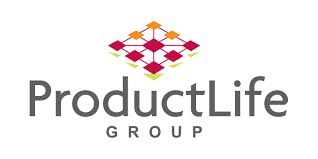Likely New Timelines for IDMP Implementation Revealed at Industry Webinar

A webinar hosted last week by life sciences outsourcing and consulting services specialist ProductLife Group as part of its Evolve thought leadership programme, has set out a new, updated roadmap for pharma organisations preparing for IDMP compliance.
The webinar, featuring the latest advice from three expert commentators on regulatory and data standards requirements, discussed the revised timelines being agreed for the transition to the new global ISO standard, Identification of Medicinal Products (IDMP). This had been due to replace the current eXtended Eudravigilance Medicinal Product Dictionary (XEVMPD) by July 2016.
Although no new official deadline has been formally announced, the July 2016 target is now seen as unrealistic. This is due to a number of practical hurdles including the delayed availability of ISO Implementation Guides which are still being revised and updated. It is likely to be January 2016 at the earliest before agreed ISO guidelines start to become available and as late as August 2016 before the final version of the ISO guideline on substances is complete. European guidance for the first stage of implementation for medicinal products will be available in the first quarter of 2016 and for substances in the second quarter of 2016.
The next step is for the European Commission to respond to the new proposals for a phased implementation, which went before the Heads of Medicines Agencies on 7 July.
Discussing the evolving timeframe, speakers Romuald Braun, Vice President of Strategy for Life Sciences at INFOTEHNA Group; Andrew Marr, Managing Director of Marr Consultancy; and Erick Gaussens, Chief Scientific Officer at ProductLife Group agreed that a revised roadmap would be beneficial for companies. It will give organisations more time to adapt the requirements for their own strategic benefit, and favours a phased approach which will be more realistic and manageable to achieve, they said.
Each speaker warned against seeing this as an opportunity to put IDMP preparation efforts on hold.
“The EMA and NCAs are confident that the European Commission will accept the new proposals when they are agreed by the Heads of Medicines Agencies,” said Andrew Marr. He is coordinating vendor and expert input to the EU ISO IDMP Task Force, which provides recommendations to the EMA and national competent agencies (NCAs); i.e., those making the decisions on the implementation of the new standards.
“In the meantime there is only one real plan being developed, which is to push forward with phased but dependent implementations for products, substances, organisations and referentials [vocabularies],” he noted.
The benefit of the new phased approach and revised timelines, he said, will be “more effective change management; better adoption of the new operating model; the chance to achieve a sustained higher quality of data; and the chance to forecast the necessary resources appropriately.”
Instead of one huge, overwhelming programme of work, organisations can now think in terms of 4-5 distinct projects with more realistic timelines and more easily defined scope — “creating the basis for real projects and planning, especially for those companies which have not yet started their IDMP journey.” For those with plans already underway, the revised implementation plan offers an opportunity to review whether they are doing things in the right order, he added.
Commenting for ProductLife Group, Erick Gaussens said: “Everyone will benefit from extra time to think, prepare and budget for IDMP. There is now plenty of opportunity for all parties to consider their roles and responsibilities.”
Romuald Braun of INFOTEHNA Group advised organisations to start now to ensure they are “on target without any of the hassle,” adding that it will be essential for companies to design and test business processes with real users, real data and real IDMP solutions. “By September 2015 you could have a first pilot underway with one product, and have begun expanding that and developing the integration by February 2016, so that by April you have something that’s thoroughly tested and even ready to use,” he said.
Having additional time to get the basics right means organisations also have an opportunity to explore scope for additional internal efficiency wins for their businesses, through greater automation and streamlining of information management processes.
The new IDMP standards were originally intended to aid identification of substances and medicines for pharmacovigilance purposes; the scope has grown however and there is now growing interest in using IDMP data for broader healthcare purposes. “The ultimate scope of IDMP is as big as ever and companies do need to plan for how to deal with IDMP in the longer-term,” Marr noted.
Related News
-
News Pharmaceutical industry supports COP28 health stance in joint statement
As COP28 takes place over this week in Dubai, UAE, several bodies in the pharmaceutical and health industries have come together to announce support of key movements in sustainability in the sector, and to recognise sustainability as a health issue.&nb... -
News Biden backs Cold-War measures to shore-up medical supply chains
In a recent strategy to combat rising inflation and the cost of living crisis, President Joe Biden has invoked a Cold War-era act to increase investment in a selection of medicines and supplies. -
News CPHI Podcast Series: What does the changing US Pharma market mean for industry and patients alike?
In this week's episode of the CPHI Podcast Series Lucy Chard, Digital Editor for CPHI Online is joined by James Manser to discuss the political and market changes in the US pharma field. -
News Which 10 drugs are open to price negotiation with Medicare in the USA?
The Centres for Medicare & Medicaid Services, under the Biden administration in the USA, has released a list of the 10 drugs that will be open to price negotiations as part of the new legislation under the Inflation Reduction Act (IRA). -
News 10 Major Drug Approvals So Far in 2023
Last year, 37 novel drugs were approved by the FDA, this was a high number for such a category, and covered many fields including oncology, demonstrating how promising further research is, and how it is only continuing to build. To date, there are alre... -
News Novartis agrees for copies to be made of cancer drug to reach poorer countries
Novartis signs agreement with MPP to have generics of it's leukemia drug made so that it can be more easily distributed to the world's poorer countries. -
News CPHI Podcast Series: outsourcing and manufacturing trends
Listen to the CPHI Podcast Series this June to hear Gil Roth of the PBOA speak with Digital Editor Lucy Chard about the biggest trends and topics to watch in pharma outsourcing and manufacturing at the minute. -
News New WHO health emergency guidelines expect full transparency from Big Pharma
The WHO are proposing a new set of pandemic guidelines to set out how future global health crises should be handled.
Position your company at the heart of the global Pharma industry with a CPHI Online membership
-
Your products and solutions visible to thousands of visitors within the largest Pharma marketplace
-
Generate high-quality, engaged leads for your business, all year round
-
Promote your business as the industry’s thought-leader by hosting your reports, brochures and videos within your profile
-
Your company’s profile boosted at all participating CPHI events
-
An easy-to-use platform with a detailed dashboard showing your leads and performance







